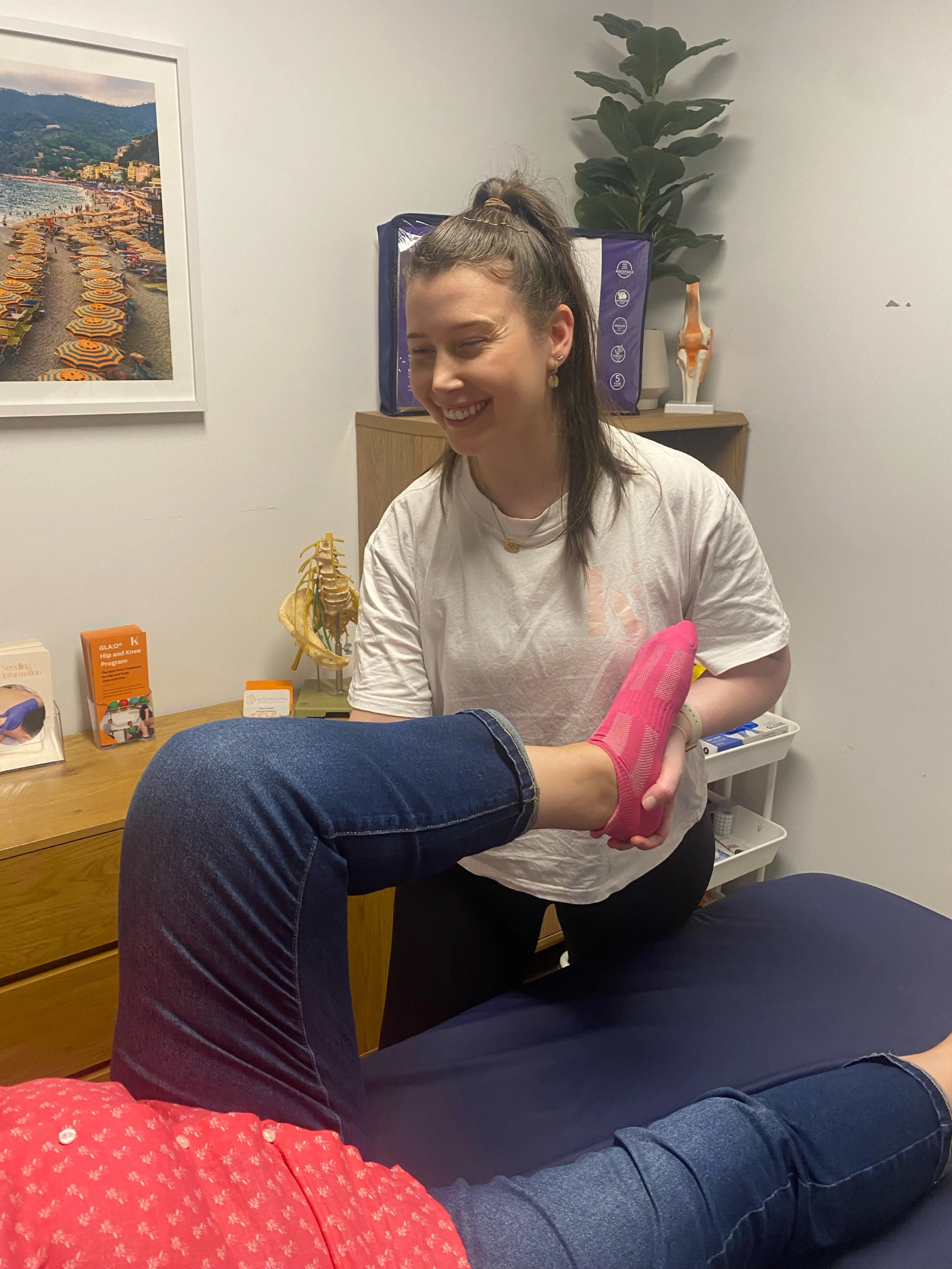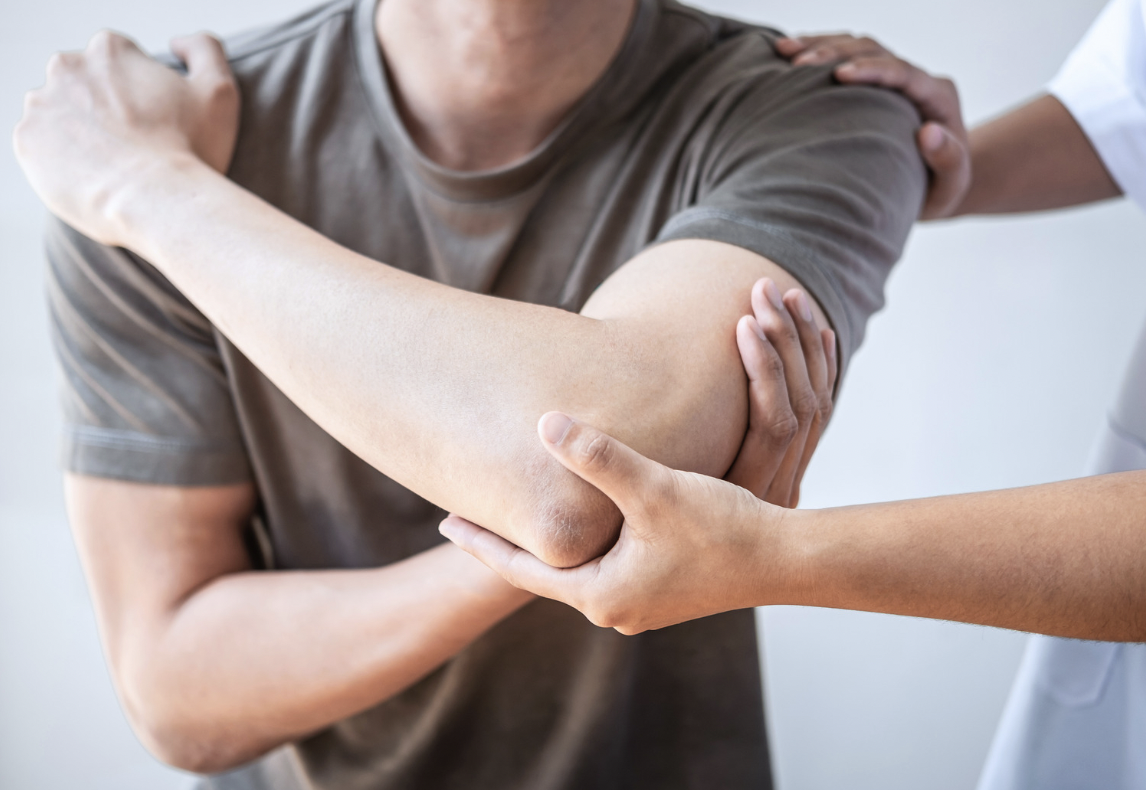Blogs & Articles
Helpful tips from our physiotherapist on injury prevention, returning to sport, women’s health, staying active after 50, and much more!

Returning to Exercise Postpartum
Hey Mamas! Wondering how to safely regain strength after birth? The first six weeks are all about gentle recovery, and the right movements can help you reconnect with your core and pelvic floor. In this blog, we provide helpful guidance on postpartum exercises, including walking guidelines, Kegels, and gentle core exercises, to support your healing journey. Click to learn more and start your recovery with confidence!

Knee Osteoarthritis: Do I Need Surgery or Can Physiotherapy Help?
Wondering if you need surgery for knee osteoarthritis? Learn about evidence-based treatments, including the GLA:D® program, a proven physiotherapy approach to reducing pain and improving mobility without surgery. Find out if non-surgical options can help you in Hurstville!

How to Improve Bone Density and Prevent Osteoporosis
We reach peak bone mass around age 30, and after that, bone density naturally declines. For women after menopause, the risk of osteoporosis increases due to lower oestrogen levels. A physiotherapist can create a safe, tailored exercise plan to improve bone strength, balance, and posture while reducing injury risk. With the right guidance, you can protect your bones. Read more here.

Getting Back in the Game: How to Safely Return to Sport After an Acute Injury
Rushing back after an acute sports injury can lead to reinjury and long-term setbacks—but with the right rehab plan, you can return stronger and more resilient than before.
Not sure when it’s safe to start training again? Wondering how to rebuild strength and prevent future injuries? Keep reading for professional physiotherapy tips on recovery, rehab, and getting back to peak performance—safely!

Build Strong Bones: 5 Essential Exercises for Bone Health
Maintaining strong and healthy bones is crucial for overall wellbeing, especially as we age. The good news? You can naturally support your bone health through targeted weight-bearing exercises and strength training. In this blog, we’ll highlight 5 exercises for bone health to promote bone density, improve balance, and reduce the risk of fractures. Whether you’re just starting or enhancing your fitness routine, these simple yet effective movements will help you stay active and resilient.

Why You Should See a Physiotherapist Early for Ankle Sprain Recovery
Early physiotherapy after an ankle sprain is crucial to prevent chronic pain, repeated injuries, and joint instability. At Kaylana Wellness Collective, we provide personalised care to restore ankle strength, mobility, and stability. Our experienced physiotherapists use evidence-based techniques to support faster recovery and reduce re-injury risks. Book your consultation today for effective ankle sprain treatment in Hurstville.

Benefits Of Mat Pilates During Pregnancy: Strengthen Your Body And Prepare For Labour
Discover how Mat Pilates during pregnancy can strengthen your body, reduce discomfort, and prepare you for labour. Learn how a tailored Pilates routine can support your unique journey, from building core strength to maintaining pelvic floor health, instructed by a women’s health physiotherapist.

Building Strong Bones: The Role of Exercise in Managing Osteoporosis
Osteoporosis affects millions of people, especially those over 50, making bones more fragile and prone to fractures. But the good news is that exercise can play a powerful role in managing osteoporosis, helping to strengthen bones, improve balance, and enhance quality of life. Read more here.

The Ultimate Guide to the Best Health and Wellness Christmas Gifts
Looking for the perfect gift that promotes health, relaxation, and fun? Look no further! Whether it’s for a friend, family member, or even a little treat for yourself, we have a range of thoughtful gifts that will keep on giving long after the holiday season. Here are our top picks!

10 Essential Self-Care Tips for New Mums: Prioritising You During the Postpartum Phase
Caring for yourself is a beautiful expression of love for both you and your baby. Prioritising your wellbeing is far from selfish—it's vital for your health and for nurturing your little one. Here are some nurturing self-care ideas to help you find balance, reconnect with yourself, and build confidence as a new mum.

Falls Prevention 101: Regain Balance and Confidence with Physiotherapy
Falls are a leading cause of injury in those over 50, but many are preventable with the right approach. Discover how physiotherapy can help improve your strength, balance, and confidence, keeping you steady on your feet and reducing your risk of falls. Learn practical, evidence-based tips to stay safe and active on your feet.

Understanding Sciatica and Lower Back Pain: When to See a Physio for Help
Are you experiencing pain that radiates from your lower back down your leg? You might be dealing with sciatica. In this blog, we’ll explore the causes and symptoms of sciatica and lower back pain, how this can impact your daily life, and the importance of seeking physiotherapy. Discover effective treatment options and the benefits of tailored exercises. Take the first step towards relief and regain your mobility!

Staying Active During Menopause: Supporting Bone Health, Strength, and Overall Wellbeing
Menopause brings significant changes to a woman's body, particularly when it comes to bone health. As oestrogen levels decline, the risk of developing conditions like osteopenia and osteoporosis increases. In this blog, we explore the importance of maintaining strong bones during menopause, the risk factors associated and actionable steps women can take to support their bone health.

Exploring the ACL Cross Bracing Protocol: A Non-Surgical Approach to Recovery
If you've experienced an ACL rupture, surgery might not be your only option. The innovative ACL Cross Bracing Protocol offers a non-surgical path to healing and is changing how ACL tears are treated. Learn more here.

Understanding Abdominal Separation: Key Insights You Need to Know
Abdominal separation - Everything you need to know! Whether you're navigating pregnancy or postnatal recovery, this blog will give you a better understanding of what abdominal separation is and how physiotherapy can support you throughout your motherhood journey.

Understanding Rotator Cuff Pain: Causes, Treatment and Evidence-Based Insights
Struggling with shoulder pain? Rotator cuff related injuries can make even simple tasks feel difficult —whether you're reaching overhead, picking up your kids or lifting in the gym. Curious about the common causes, symptoms, and the best ways to find relief? Click to read how you can get back to doing what you love.

Grip Strength: The Health Indicator You Didn't Know You Needed
Did you know your grip strength is a powerful predictor of your overall health? Beyond helping with daily tasks like carrying groceries or opening stubborn jars, grip strength is linked to your muscle mass, bone density, and even heart health. Find out everything you need to know in our latest blog.

Pregnancy-Related Pelvic Girdle Pain: What You Need to Know and How to Find Relief
Experiencing pelvic pain during pregnancy? Pregnancy-Related Pelvic Girdle Pain (PRPGP) can make daily activities uncomfortable, but the good news is that it doesn’t have to be something you just put up with. In this blog, we’ll explore what PRPGP is, what aggravates it, and share tips for managing discomfort through physiotherapy and safe exercise.

Understanding Frozen Shoulder: Causes, Treatment and How to Regain Function
Feeling like your shoulder is frozen in place? Struggling to move without discomfort? You might be dealing with frozen shoulder. Discover what frozen shoulder is, how it develops, and how physiotherapy can help in our latest blog.

Why We Love Clinical Exercise: Helping You Return to What You Love
Clinical exercise is the ultimate key to getting back to the activities you love. It’s more than just a workout—it’s a personalised approach that bridges the gap between rehabilitation and fitness. If you want to feel empowered in your movement, reduce pain, and move with confidence, clinical exercise can help you get there!

